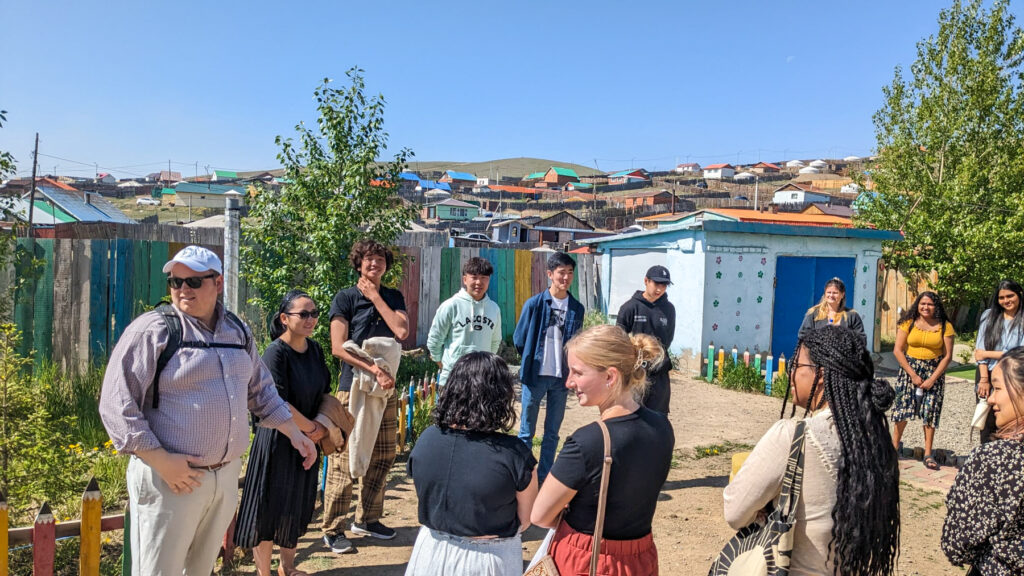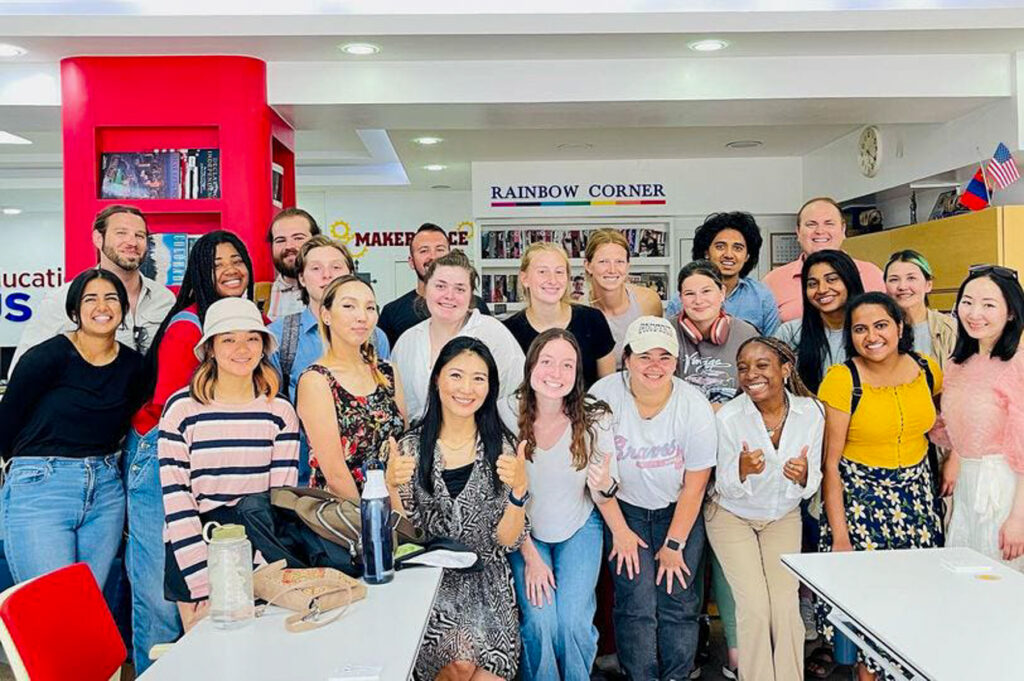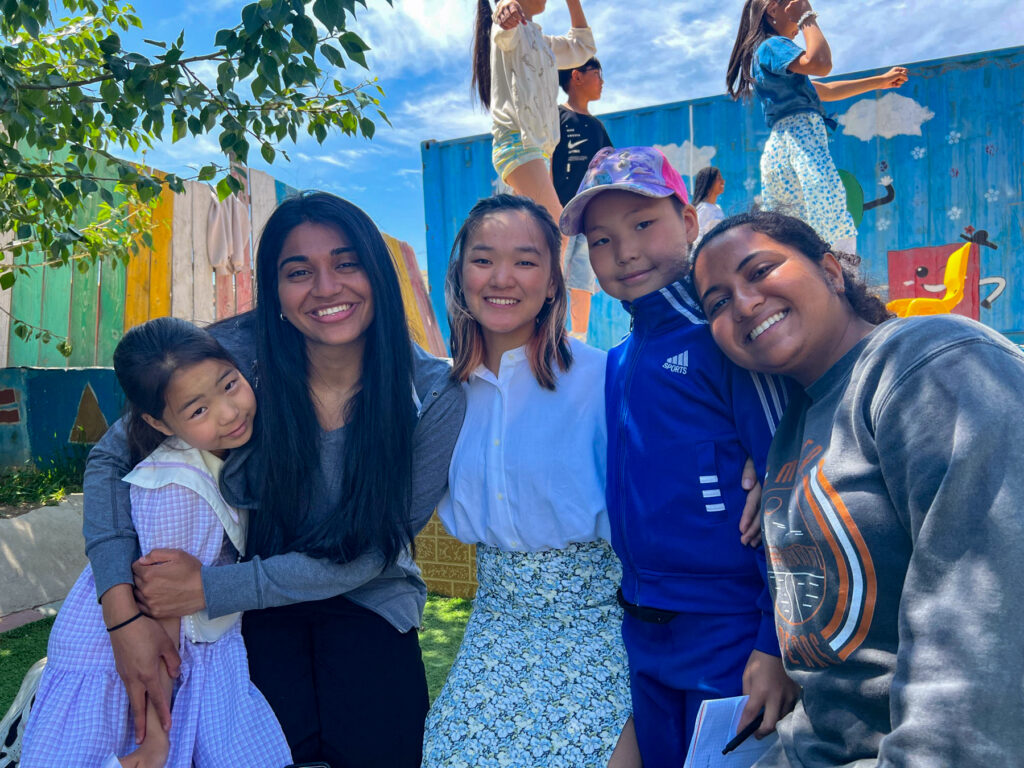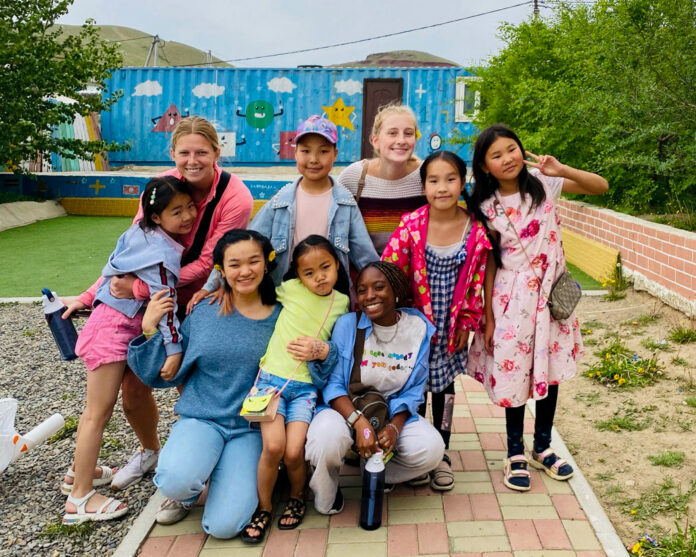
For two weeks this summer, 70 vulnerable and marginalized children escaped the difficult realities of their lives in Ulaanbaatar, Mongolia, to attend an enrichment camp taught by Mercer University students as part of Mercer On Mission.
Students taught classes on English; health; sustainability; and science, technology, engineering and math concepts to children ages 8-16 in partnership with the local Children of the Peak Sanctuary.
“Our goals were to learn about the community and then contribute to the goals of Children of the Peak,” said Bryant Harden, instructor of political science, who led the trip with Dr. Ryan Tokarz, assistant professor of global health studies, and Dr. Chinekwu Obidoa, associate professor of global health studies and Africana studies. “One of their goals is to fill the gap educationally. Though many of our students are not experts in these subjects, we partnered with Children of the Peak to focus on target subjects and get students excited with an educational experience that is very different from their standard classes.”
Many families have migrated from rural Mongolia to the fringes of Ulaanbaatar, the country’s capital and largest city. They live in dwellings called “gers,” which are round huts similar to yurts. Most families in Mongolia’s ger districts lack access to running water and the city’s sewage and heating systems. Bitterly cold winters lead families to burn coal and wood for warmth, contributing to the country’s severe air pollution.
On the outskirts of Ulaanbaatar is a garbage dump where families, including children, scavenge for food, clothing and fuel. Children of the Peak Sanctuary, supported by the Veloo Foundation, was established in 2011 to help those families by providing access to kindergarten to young children. But, secondary school can still be quite inaccessible for many children living in these districts, Harden said.
The Mercer program showed children that education is available and fun, while also touching on subjects — like sustainability, puberty and prevention of sexually transmitted diseases — that oftentimes are overlooked during the school year, he said.
“Veloo Foundation is proud to be part of the enrichment program of Mercer University as the program truly enriched and empowered the lives of not only our project community children but also the lives of the students at Mercer University,” said Dorjpalam Miriam Nira, country director for the Veloo Foundation. “It is a program of mutual empowerment.”
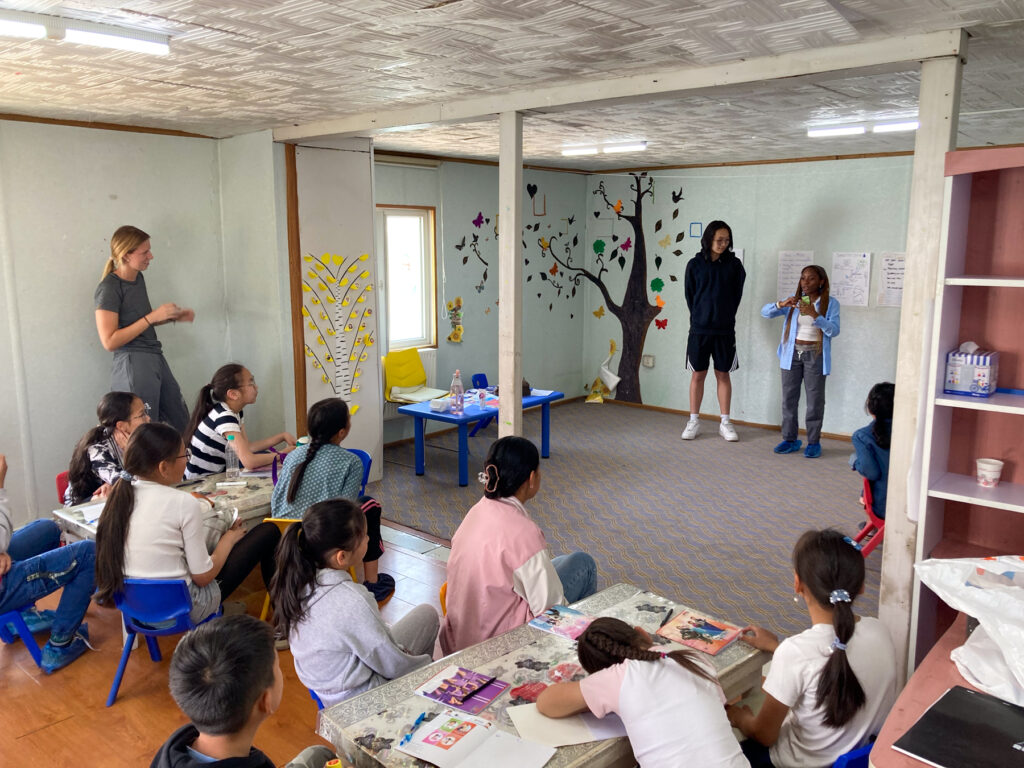
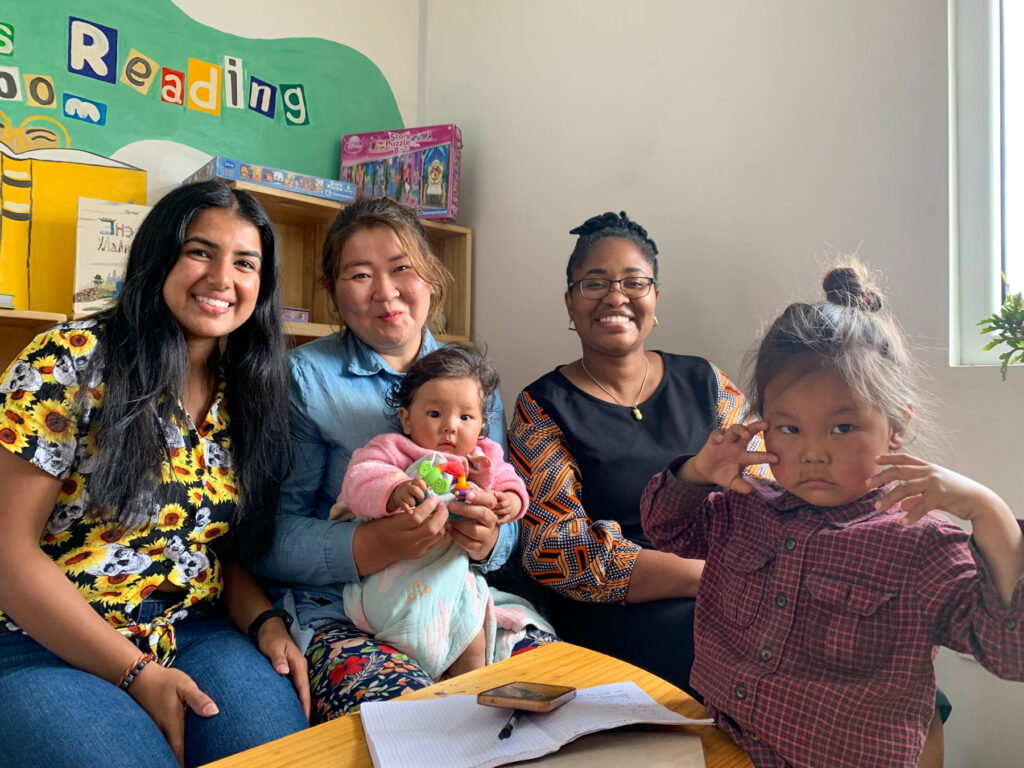
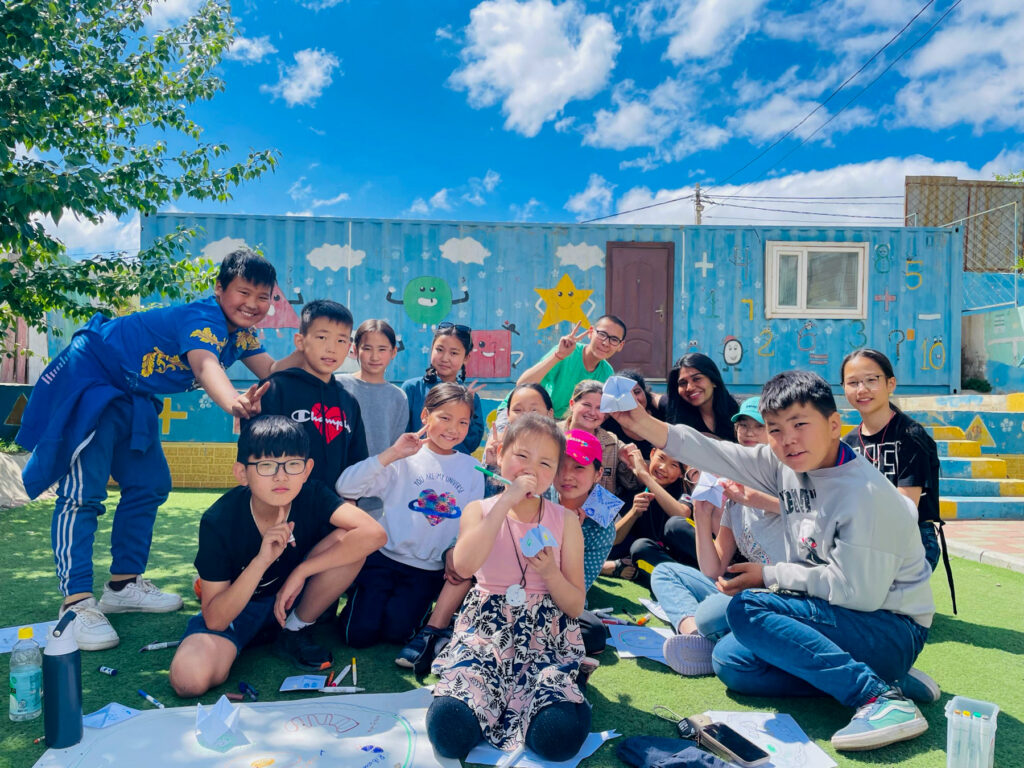
The children who attended the camp were eager to learn, Dr. Obidoa said.
“They were like sponges. They soaked up every last thing that was taught,” she said. “The impact of the teaching and learning was undeniable.”
Savannah Lackey, a global health studies major who graduated in May, taught sustainability classes to the children.
“We talked a lot about what they can do as far as activism within their own country to try to advocate for better policies and research on how to reduce the air pollution,” she said. “We talked about different mechanisms for reducing air pollution that might actually be possible to implement.”
Alisha Mitchell, a sophomore double-majoring in political science and journalism, said the Mercer students bonded with the children, who were used to a more lecture-style of teaching.
“The students in the camp were allowed to get up and just kind of be free and learn and tell us what they wanted,” she said. “One of the coordinators that we worked with was like, ‘You know, some of these kids have never spoken. I think it’s amazing how much they are speaking.’”
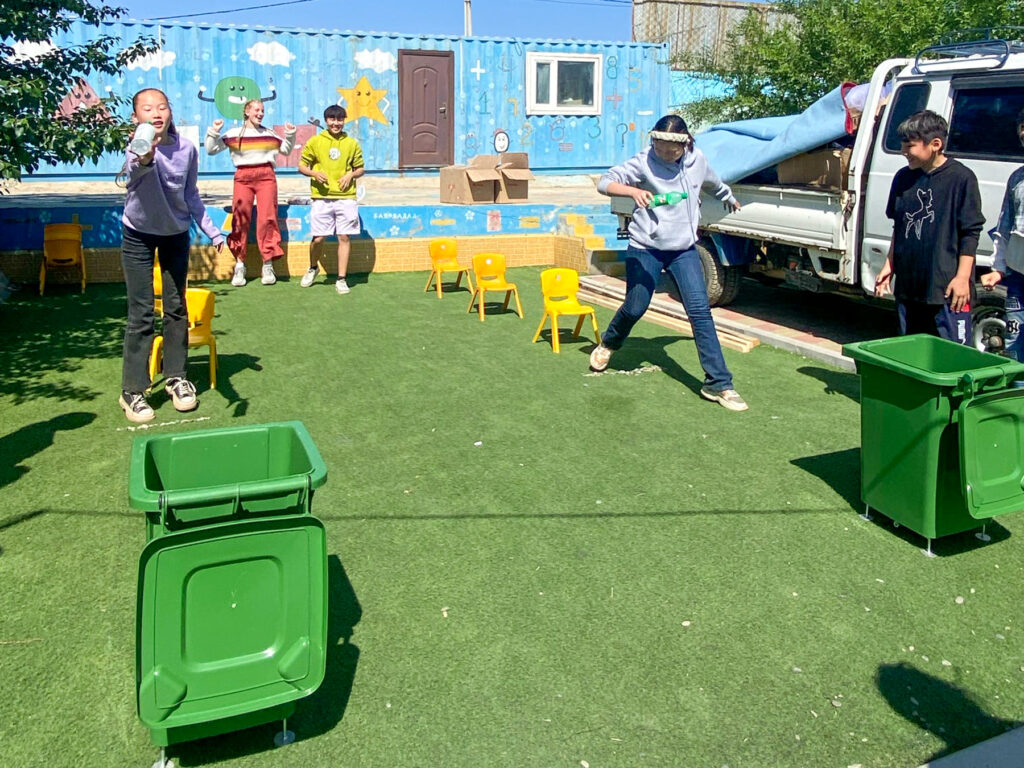
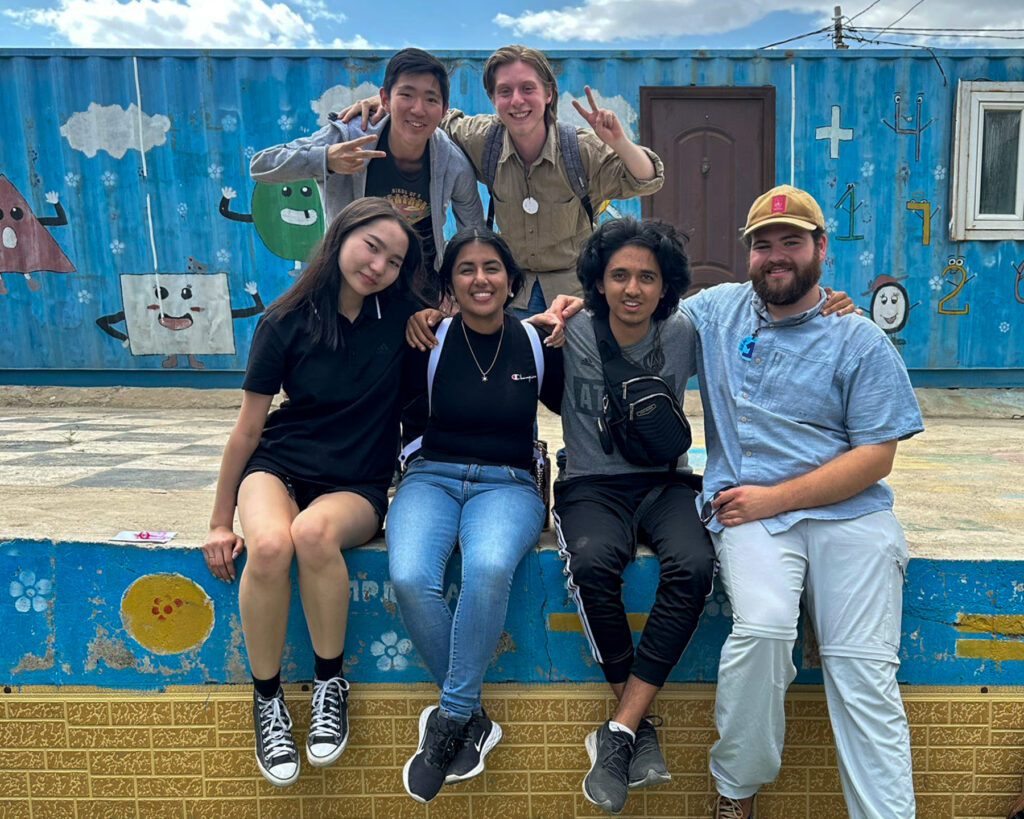
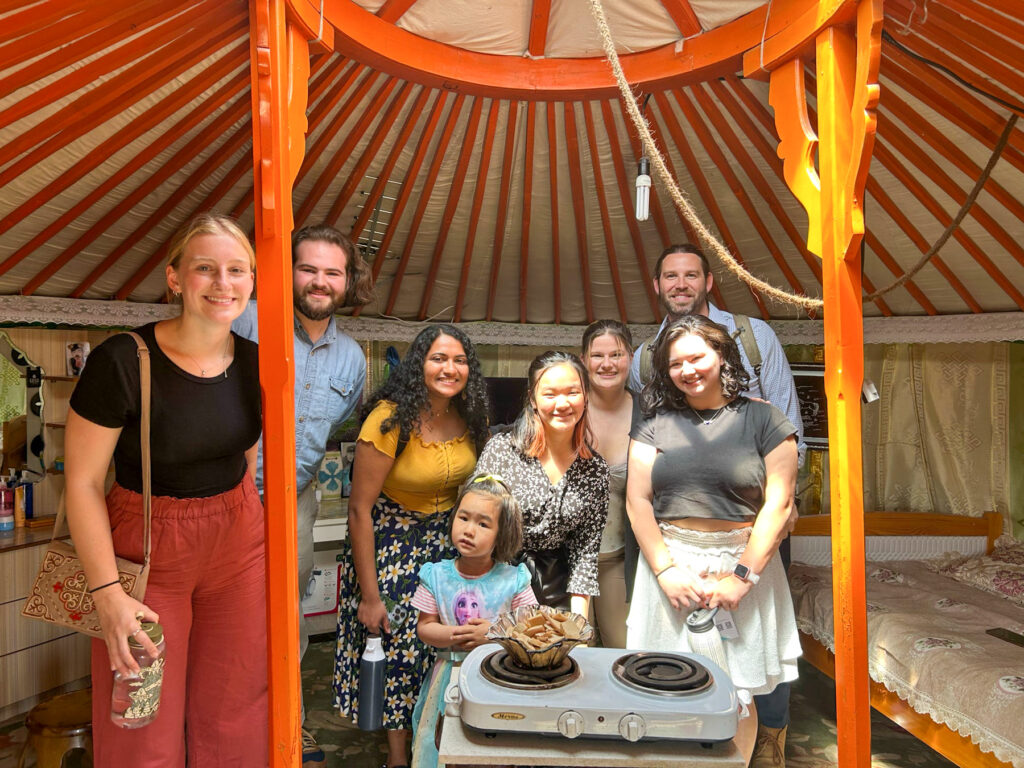
In addition to the enrichment camp, the Mercer On Mission team interviewed residents for a community needs assessment to find out what they think are the biggest health issues facing the community. In total, Mercer students and faculty spent three weeks in Mongolia.
“We developed preliminary questions to ask, and as we got a better sense of community members’ concerns, we amended that on the fly to try to meet their needs and figure out what’s going on,” said Dr. Tokarz. “So ultimately a year or two down the road, we can return on another Mercer On Mission and try to implement some of possible initiatives to help them out and address their needs.”
He hasn’t yet analyzed the data — he hopes to do that in a future class — but some broad areas of concern emerged as common themes.
“Air pollution and mental health effects of dealing with poverty and moving out of their homes to a new area where they’re having to seek jobs without their support systems were pretty common themes,” he said.
Mitchell said residents she interviewed, with the help of a translator, were concerned about the environment.
“They understand how bad it is, and people in the ger district, because they live off of the land more than people in the city, they care more about the land than anyone,” she said.
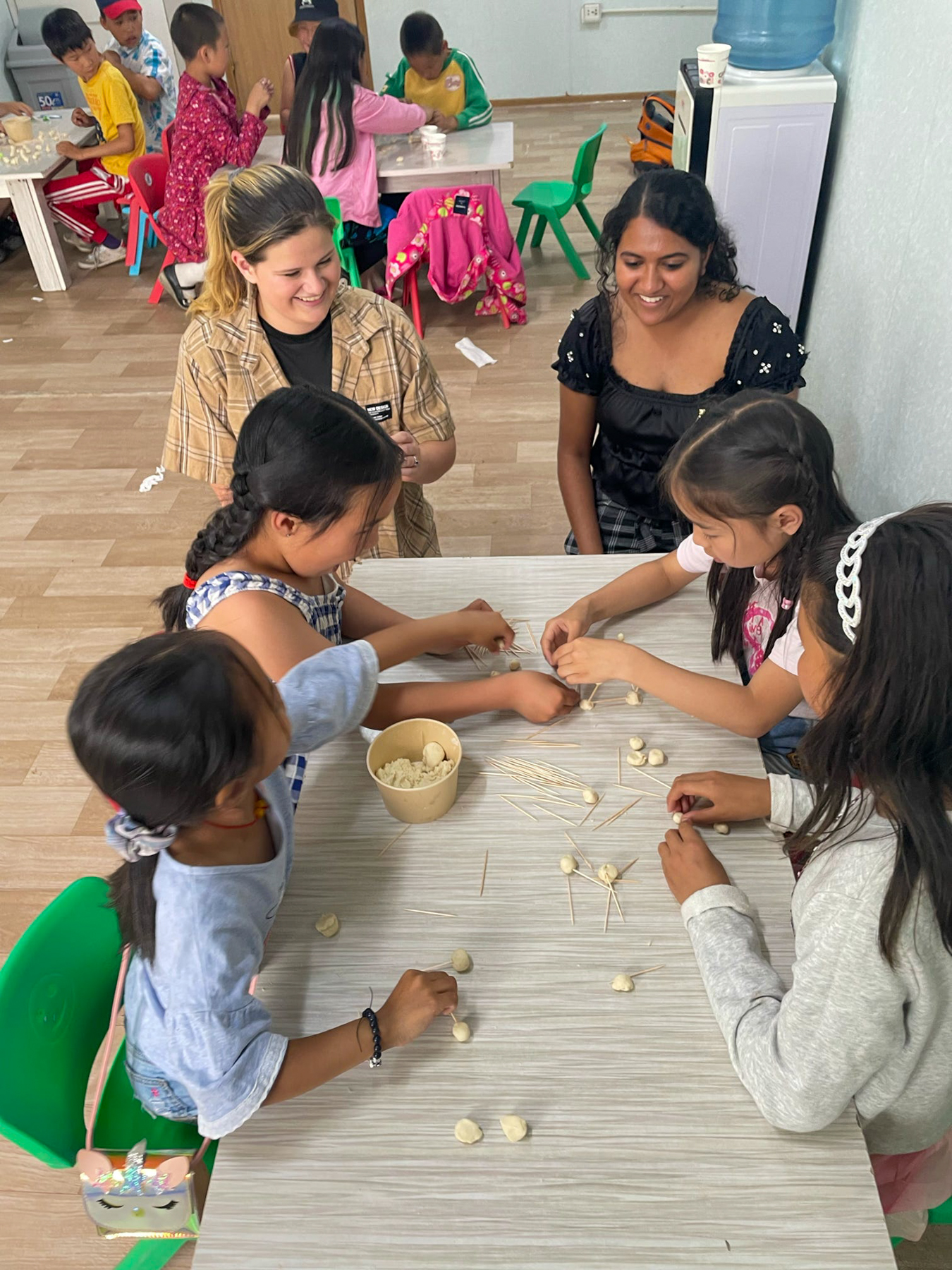
Arsha Moorthy, a senior double majoring in biochemistry and molecular biology and Spanish, said she enjoyed the cross-cultural experiences she had in Mongolia. She connected not only with the children she worked with but also with people her own age and adults through a program called Mongolish in Erdenet, where they helped Mongolian speakers practice their English.
“I met a lot of friends through that experience,” said Moorthy, who stays in touch with her new friends through the WhatsApp messaging mobile app.
Before the trip, she worried about how she would connect with people who didn’t share her language, but she discovered common interests in the Harry Potter series and meditation.
“Regardless of where you go, people are people, and you will connect with them through something,” she said.
The academic courses paired with the trip were Engaging the World: Modern Mongolia and Health and Development in Mongolia. As part of students’ immersion in the country, they visited a variety of sites including a mining company, centers and landmarks of culture and tradition, national museums, and nonprofit organizations, Dr. Obidoa said.
The Mercer On Mission team also took a 12-hour train ride to Shammar, a city in the northern part of the country, where students participated in building a ger and agricultural activities, as well as visited local families, she said.
“They had a well-rounded country experience involving visits to the countryside, a mid-sized city and the largest city in the country,” she said.
Dr. Obidoa said she saw the Mercer students grow from the experience. They learned patience and stamina and returned home more culturally aware and sensitive. Meanwhile, the biggest contribution Mercer On Mission provided to the community was solidarity, she said.
“Going there, working with them, says to them, ‘We see your pain,’ and that brings hope,” she said.
